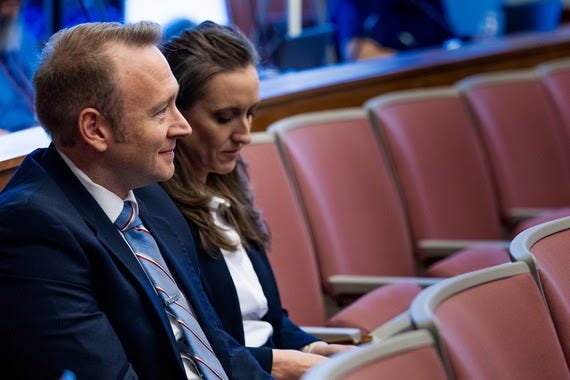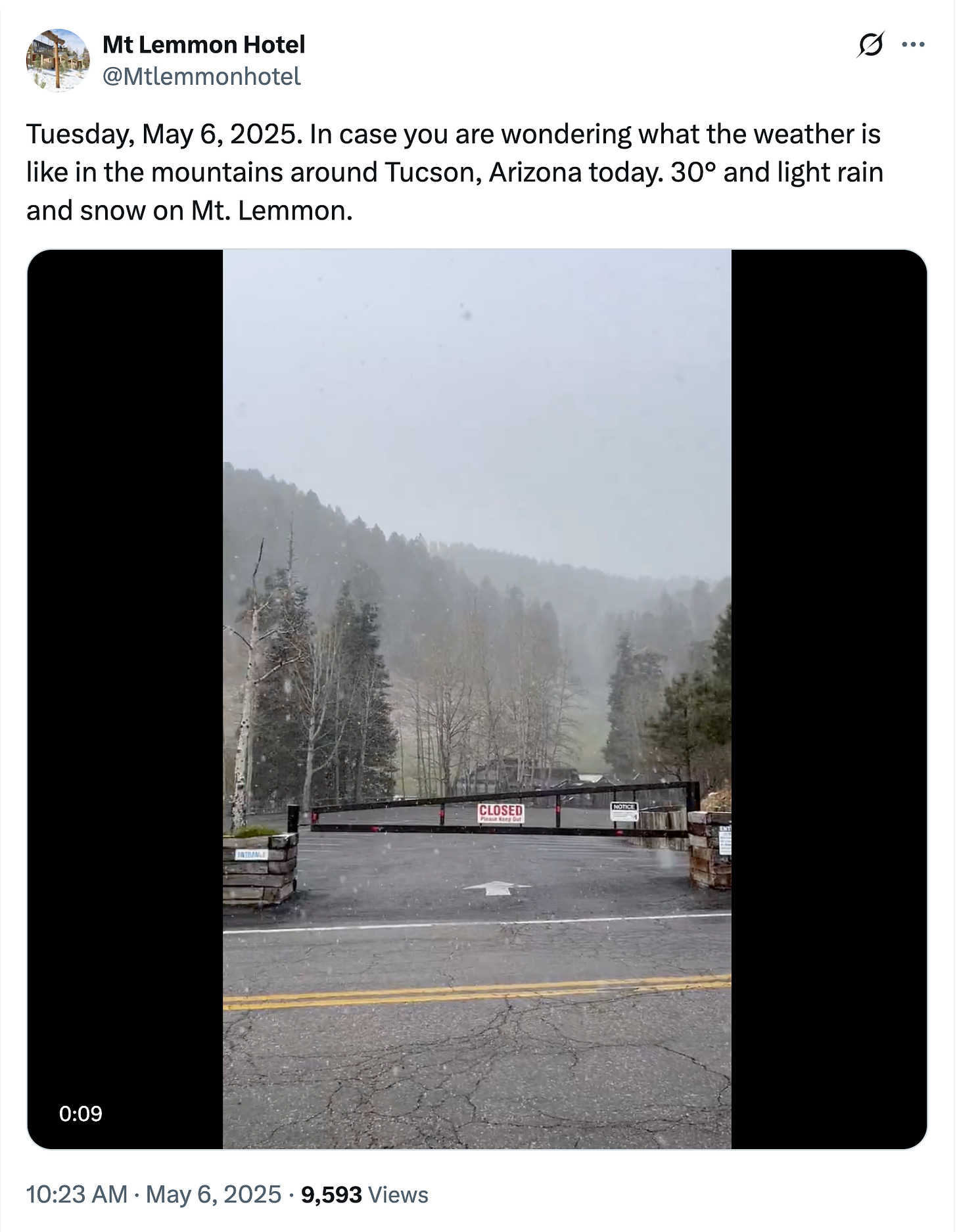An anticipated fight between the Tucson City Council and Pima County Board of Supervisors over a new water rate — which will charge county residents more — might not happen.
A slim majority of the supervisors rejected a resolution on Tuesday and derailed what was likely a precursor to another lawsuit against the city.
Supervisors Andrés Cano, Jennifer Allen, and Matt Heinz said they want to find a collaborative solution with the city, but Supervisors Rex Scott and Steve Christy said the new rate proposal is a rejection of the regional collaboration that has underscored their relationship for decades.
“This is probably one of the most underhanded ways I’ve ever seen a utility used,” Christy said on Tuesday.
While the majority wanted to see the city and county resume a friendly dialogue, County Administrator Jan Lesher said there hasn’t been much discussion due to the prior lawsuit.
Cano, who worked for the city less than a month ago, said he will not support a legal fight against the city and further litigation is not the best step forward.
"It is not about exclusion, it is about sustainability," Cano told his colleagues.
Scott said the city’s latest proposed new water rate exempts Pima County from the higher rates and he believes that the county might not have legal standing in a future legal fight with the city.
Residents living in unincorporated areas could possibly sue over the differential water rates, as they would have to pay the higher rate.
But that would mean they would be on their own, literally fighting city hall without the county’s lawyers.
No tax on houses to pay for housing
A proposed tax hike for affordable housing is dead.
Well, at least for two weeks.
Cano was able to convince his colleagues to postpone a proposal from Heinz to raise property taxes by 3 cents next year, which would create a dedicated fund to help develop 12,000 affordable housing units in partnership with private developers.
While the cost would be about $7 for the average homeowner in the first year, Cano said he wants to continue to discuss the proposal with community partners.

David Miller watches as the Board of Supervisors confirms him as the justice of the peace. Image courtesy of Pima County.New judge incoming
Pima County has a new justice of the peace.
Supervisors appointed David Peter Miller, a deputy county attorney, to the vacant seat in the Pima County Consolidated Justice Court.
Justices of the peace are elected judges who handle minor civil disputes, including small claims, landlord-tenant issues, and misdemeanors like DUIs and shoplifting, and traffic violations. They’re not required to be attorneys.
He is taking over for Alexander Ball, who stepped down recently.
Miller will start immediately, and he’ll serve out the rest of Ball’s term, which goes until the end of next year, when the county will hold a special election for the remaining two years of his term.
At some point, he’ll have to get training from the Arizona Supreme Court.
The supervisors instructed staff to conduct background checks on the candidates, but those checks weren’t completed, Heinz noted.
That also appears to be what happened when the supervisors appointed Cano to the board three weeks ago. Staff was supposed to do background checks on the candidates for the vacant District 5 supervisor seat.
We filed a formal records request with the county asking for clarification about the background checks after Cano was appointed 12 days ago. It remains unfulfilled.
Taking the fight to Washington
The supervisors directed the Pima County Attorney’s Office to file a lawsuit against the Trump administration following a lengthy executive session meeting.
While it is unclear what the exact issue is, the item was placed on the agenda by the Pima County Attorney's Office.
The agenda item simply lists "direction regarding federal funding and potential legal action."
Our best guess is it’s related to a fight with FEMA, with the federal government challenging roughly $10.2 million in federal reimbursement owed to the county related to operating shelters for asylum seekers.
Rest in Peace, Gerald
On a final note, our sincere condolences to Heinz — whose father, Gerald — recently passed away.
The Tucson City Council has a new member, Rocque Perez.
Perez will represent Ward 5 for the rest of the year. He replaces Richard Fimbres, who resigned earlier this month after 16 years of service on the Council.
Perez is the executive director of the Metro Education Commission (MEC). And as we recently noted, the MEC is partially funded by the city of Tucson.
This means that when it comes to the budget, staff will have to break out the section related to the MEC and have a separate vote — without Perez.1
Before the meeting on Tuesday afternoon, the choices before the Council had dwindled down to four.
John Adkisson removed his name from consideration, telling the Tucson Agenda he did it because there were “better-qualified candidates.”
Looks pretty clear: When University of Arizona faculty voted whether to ask President Suresh Garimella to defend the school from “ideological and governmental attacks,” the results were overwhelming, the Arizona Daily Star’s Prerana Sannappanavar reported. More than 90% said they want Garimella to refuse to comply with “unlawful” demands by federal officials and help create a “mutual academic defense compact.” The backdrop to all this is the Trump administration cutting federal research funding, threatening to take over Columbia University and generally targeting higher education.
Deserted by D.C.: Trump’s tariffs and federal downsizing policies are hitting Arizona hard. Arizona PBS is at risk of losing 15% of its budget amid Trump’s executive order ending federal funding for NPR and PBS, while the Arizona Humanities nonprofit stopped issuing grants for things like children’s literacy programs after it lost $1 million in funding, per the Republic’s Stephanie Murray. Meanwhile, funding already promised to local arts groups was yanked after Trump canceled several National Endowment for the Arts grants, KJZZ’s Jill Ryan reports.
Harrowing tale: If you want to know what the journey was like for the Guatemalan woman who’s experience sparked protests in Tucson last week, the Arizona Republic’s Raphael Romero Ruiz brings you the tale of Erika Mateo, a Guatemalan woman who braved the journey through the desert in the final month of her pregnancy. She had given up hope, but then Border Patrol agents found her next to the border wall. She ended up in a hospital room with agents stationed nearby and protesters outside the hospital calling for her release.
“I walked and walked, but everything looked the same. It was like walking in place,” Mateo said.
That’s not very nice: Arizona lawmakers approved a bill that would require hospitals to ask about patients’ immigration status, Capitol Media Services’ Howard Fischer reports. Republican Sen. Wendy Rogers, who sponsored the bill, said patients who don’t have legal status wouldn’t be denied treatment. But Rogers also said she doesn’t really care. The Arizona Daily Star reported this week that a Mexican man was detained after staff at St. Joseph’s Hospital repeatedly asked about his immigration status.
Time for a laugh: If you want a break from the world, comedian Jerry Seinfeld is coming to Tucson in September and tickets are going on sale Friday, the Star reported.
Let’s buy Joe a ticket to the Seinfeld show. After spending all day at the Pima County Supervisors meeting, he deserves it. Just click that button and we’ll get him the best seats in the house.
Calling out DOGE: Billboards are up in Tucson and Phoenix highlighting DOGE cuts to Saguaro National Park, Arizona Public Media’s Katya Mendoza reports. Faiz Shakir, executive director of More Perfect Union, put up the billboards, which read “Reduced visiting hours made possible by DOGE.” The sentiment of the nationwide campaign that covers 40 national parks still holds true, but AZPM noted that visitor hours at Saguaro were restored to normal after a court order in March.
Congress is considering a bill that would open all sorts of doors for university students in Arizona who want to work with artificial intelligence, and for the tech startups that state officials love to court.
The groundwork has already been laid. Congress just needs to sign on the dotted line.
Subscribe to the A.I. Agenda today so you can see what the deal is!
Yes, yes — snark is Joe’s native tongue, but even he knows when to hit pause.
Why? Because something actually beautiful and uniquely Tucson is happening, and it’s about to disappear.
Local artists Maxie Adler and Kimi Eiselea have created a temporary art installation called LANDING PLACE, an homage to the plants and critters making a comeback along the Santa Cruz River.
You’ll find handmade windsocks dancing in the breeze between Cushing Street and Starr Pass Boulevard along the river — but blink and you’ll miss it. This magic vanishes after May 10.
Tip of the hat to Vice Mayor Lane Santa Cruz for flagging it in her newsletter.
In our item about polling the Ward 5 candidates about the controversial sleeping in parks ban ahead of the Council, it was Perez who refused to answer. But to be fair, three others didn’t even respond to our email.













Miller is a good choice for JP. I am confident he will be fair and look for alternatives for folks.
I worked in the courts for five years and it is very clear that good JPs make for better outcomes for people.
I've run out of invective for Wendy Rogers. Gutter talk is too good for her.